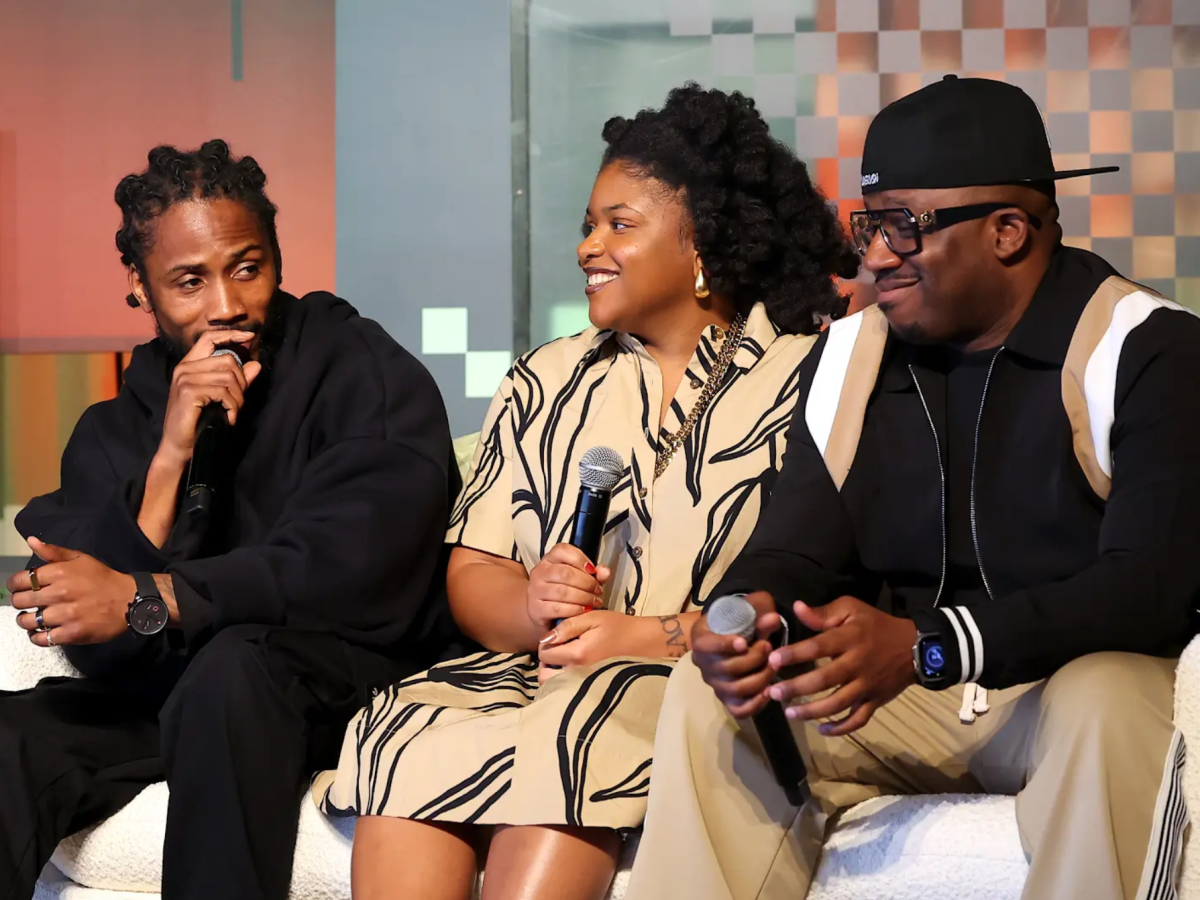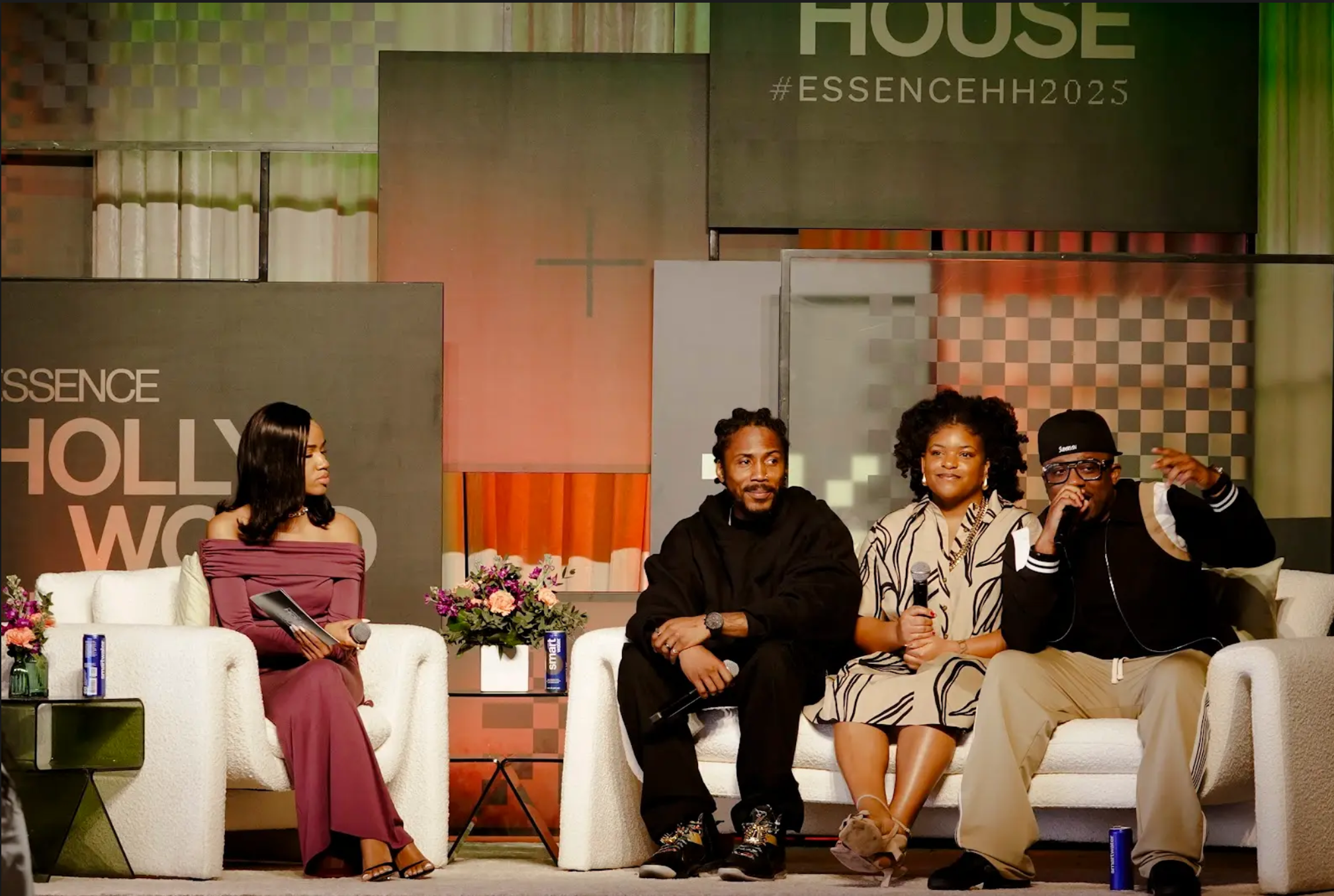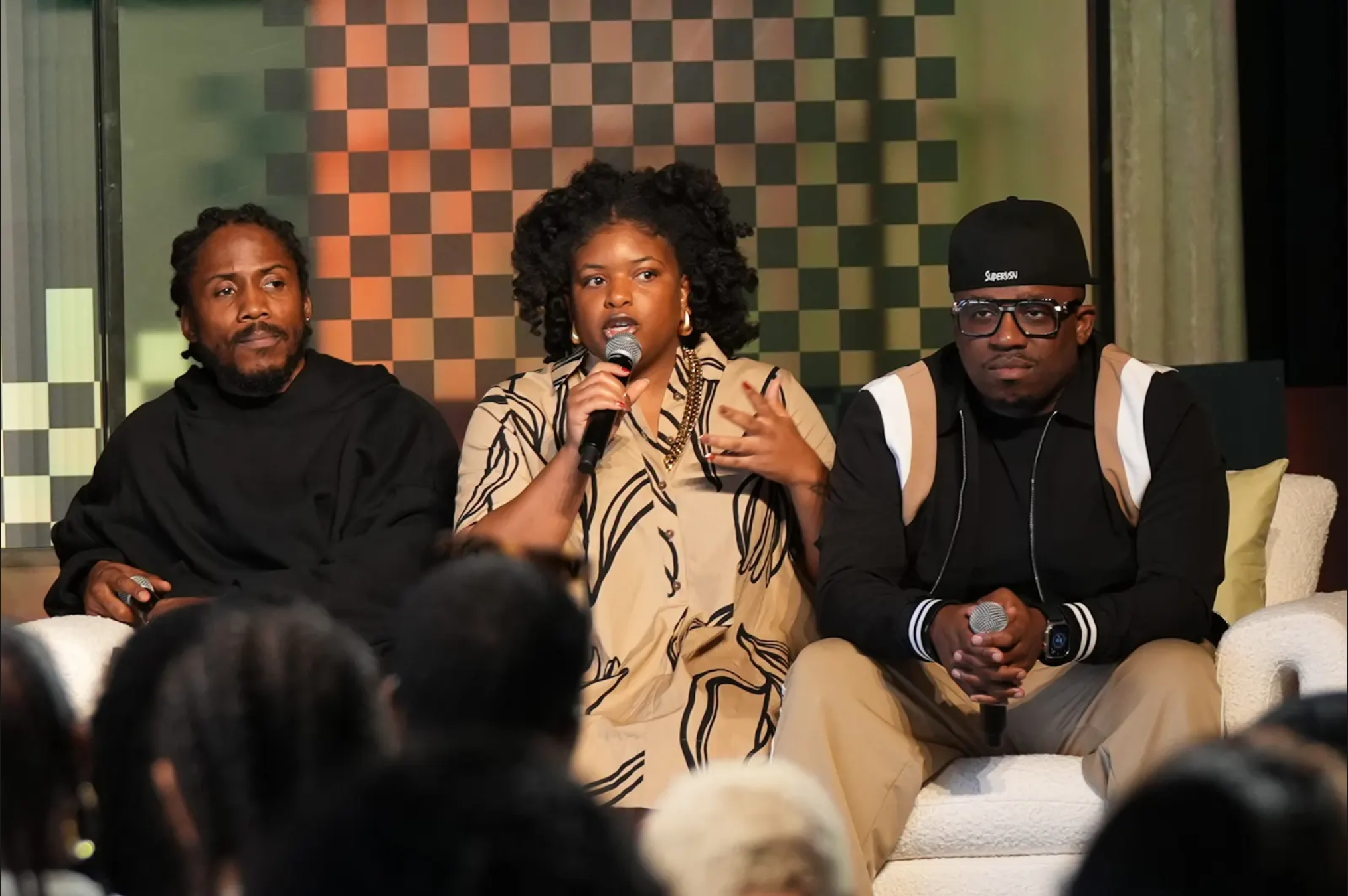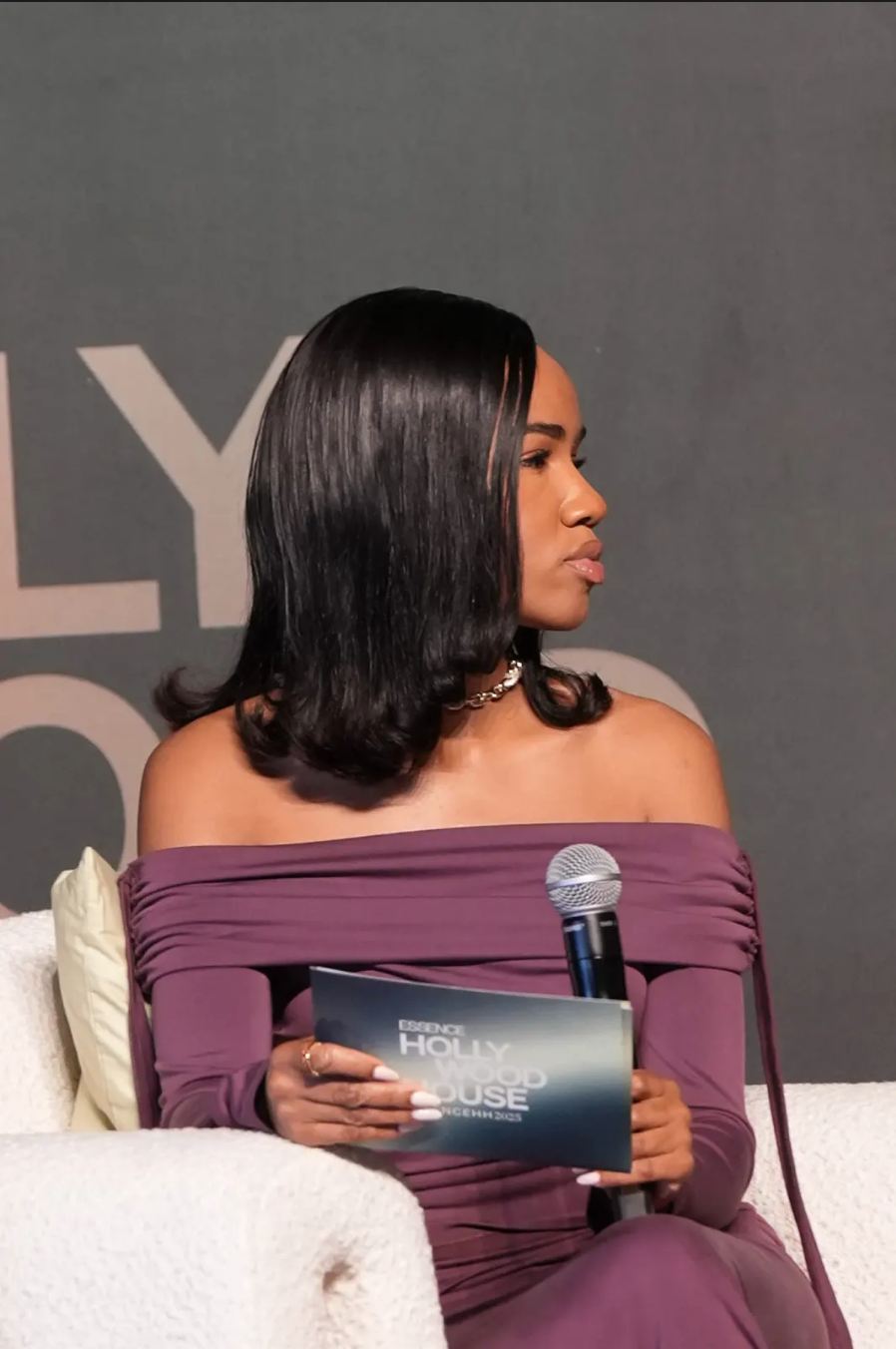Sonequa Martin-Green knows what it’s like to be the “other.” One of the few faces of color to have navigated the zombie apocalypse on The Walking Dead, she’s now the first Black woman to be a lead on a Star Trek series in its 53-year history. Perhaps Martin-Green, who stars as First Officer Michael Burnham on Star Trek: Discovery, considers “otherness” as her superpower (season two is currently streaming on CBS All Access). “It’s kind of surreal,” says the Alabama native. “Parents tell me their girls are interested in math, science and technology after watching the show. That’s incredible. It makes me want to work harder. It makes me more grateful.”
Martin-Green—who’s married to actor Kenric Green and mom to their son, Kenric II—stays focused on the creative possibilities of her intergalactic role and how her on-screen alter ego can be used as a tool to help normalize Black women in power. “There’s misogyny and racism everywhere,” Martin-Green states. “My husband and I can’t help what our son comes across. But we present him with images and messaging that will at least negate what he sees. That’s why I thank God for this role because it is something I can point to and say, ‘Hey, look at this. It’s Mommy, but it’s also a Black woman saving the world and being a genius.’”
The actress is also committed to embodying the spirit of Michael, a human who as a child witnessed the killing of her parents and was then taken from her home to live and compete as a Vulcan in order to be seen as equal. The first officer eventually joins the Starfleet to take on the war against the Klingons in season one. Michael, like Martin-Green, understands what it means to be othered and refuses to accept that people are considered a threat simply because they’re different. “I am telling this story about universality and equality, how it’s not just about the fight to gain it but also about the fight to sustain it. It makes me look at myself and question the choices I make, the way I speak, the way I navigate all the encounters I have and how I look at all the people who are different from me. It’s a call to rise,” Martin-Green says.
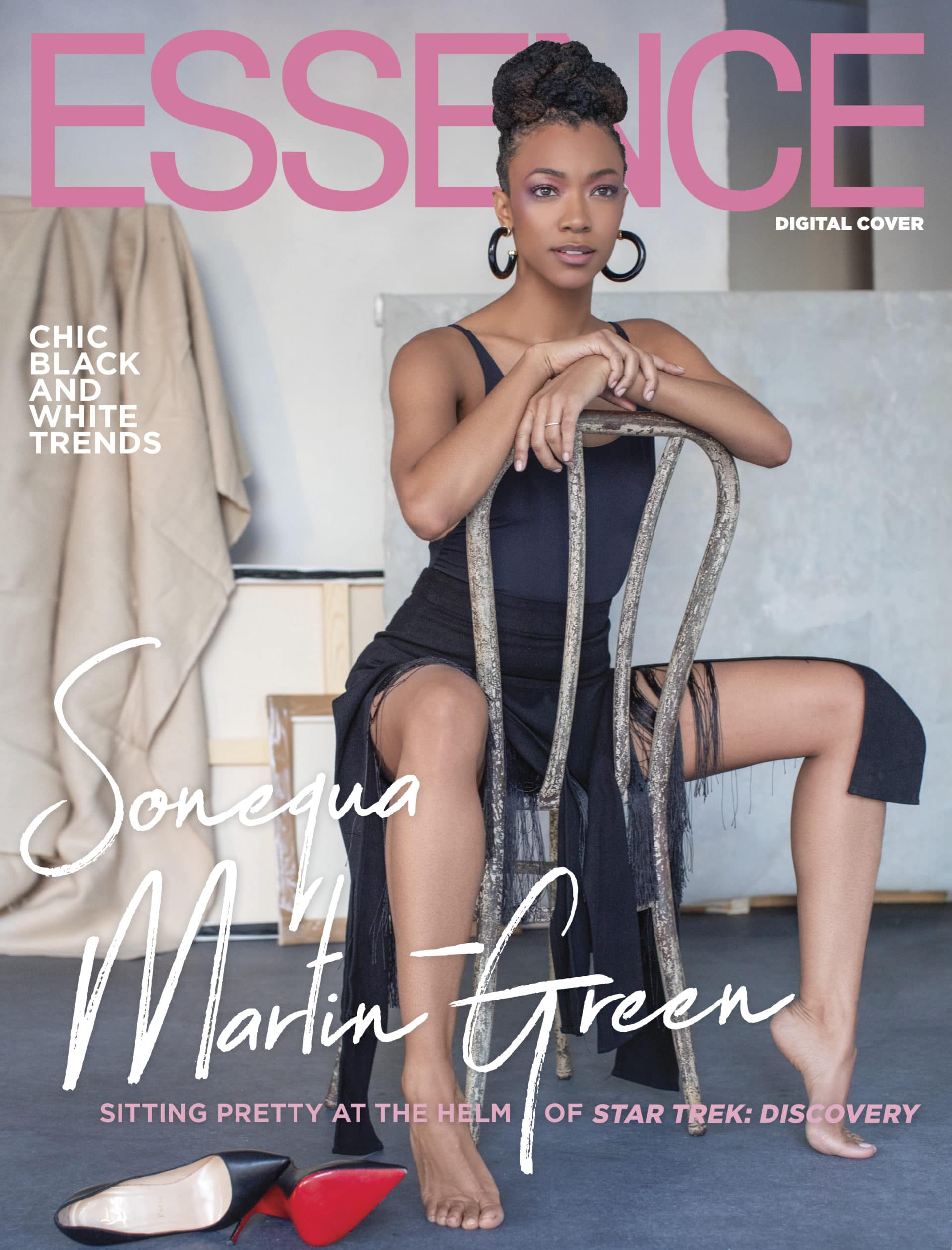
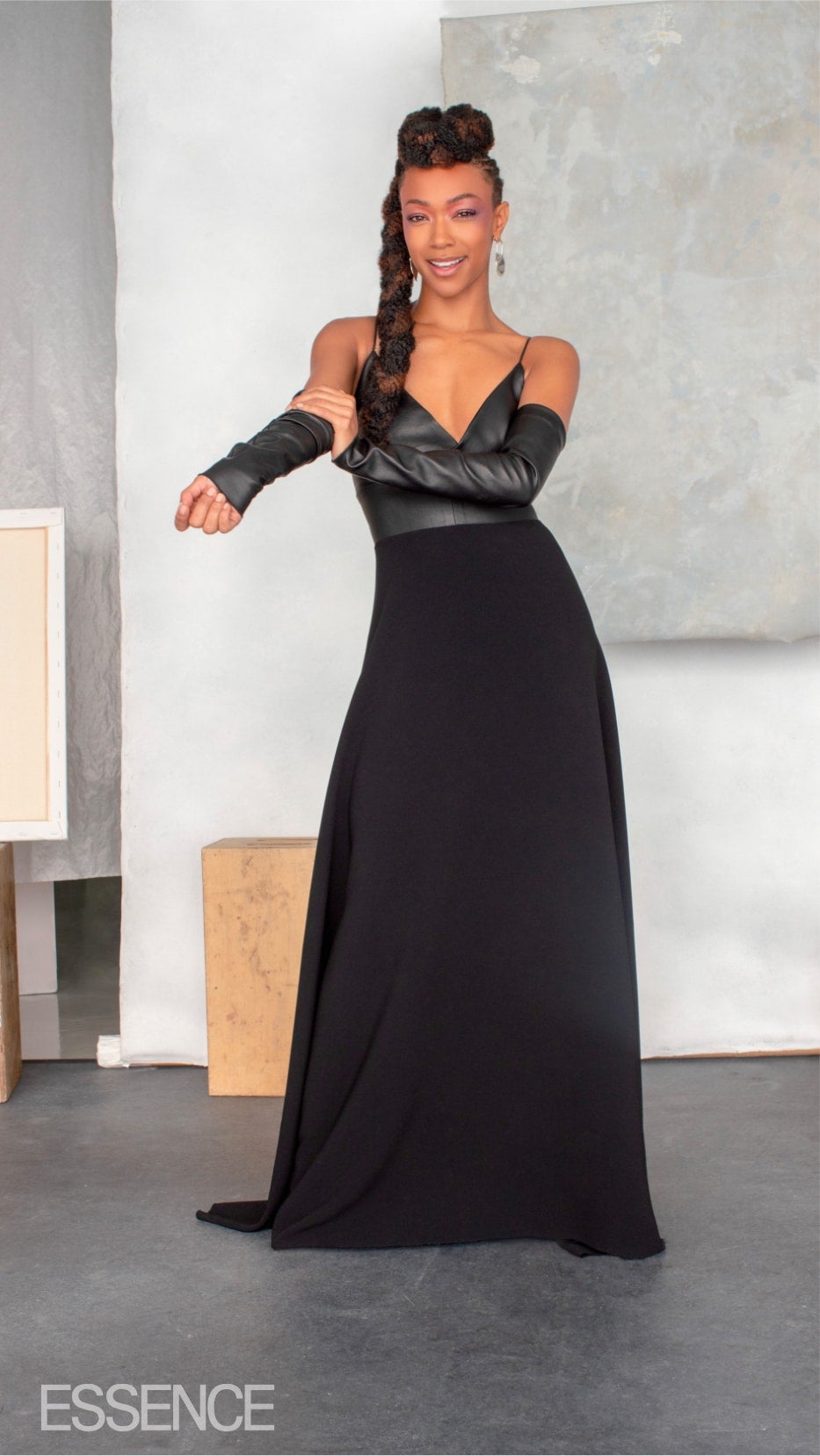
“I have a healthy yearning for more.”
SONEQUA

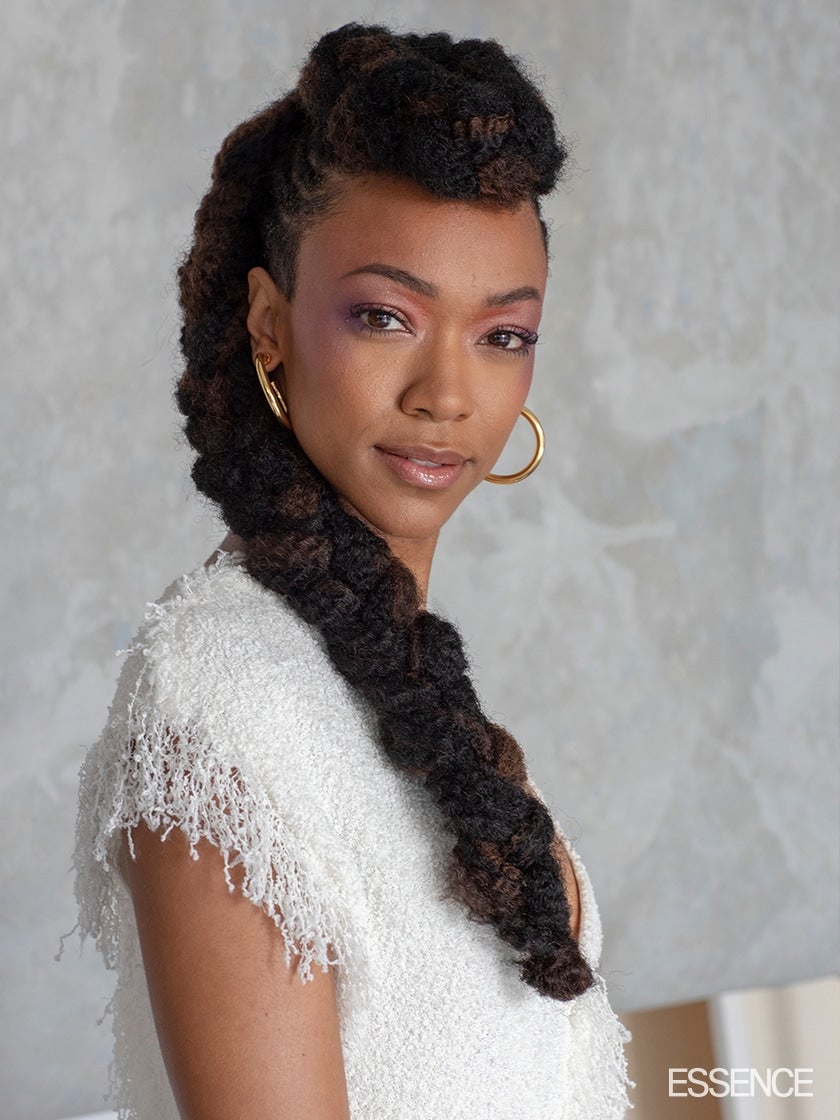
Michael isn’t only influential to her fans because of the power she possesses, or her signature blue-and-gold suit, or her intellectual capacity. She also exemplifies what it means to be a woman who’s vulnerable, compassionate, sexual and conflicted. That complexity, as well as Martin-Green’s portrayal of it, is what sets the role above so many other Black female sci-fi characters. The crippling trauma from Michael’s past is something that informs so many of her decisions and makes it difficult for her to get close to people, including romantic interest Lieutenant Ash Tyler (Shazad Latif), who is later revealed to be a Klingon. Martin-Green was more than ready to embrace that challenge.
“I saw this vision to humanize Star Trek in a way we hadn’t seen before. That’s the kind of stuff I love. That’s so challenging and fulfilling as an actor,” she shares. “Here we have this Black woman who is completely burst open. You’re seeing the inner workings of this Black woman being a human being. We need to see Black people and other people of color and women be human and be broken and be vulnerable. I think that’s a big part of how we move forward.”
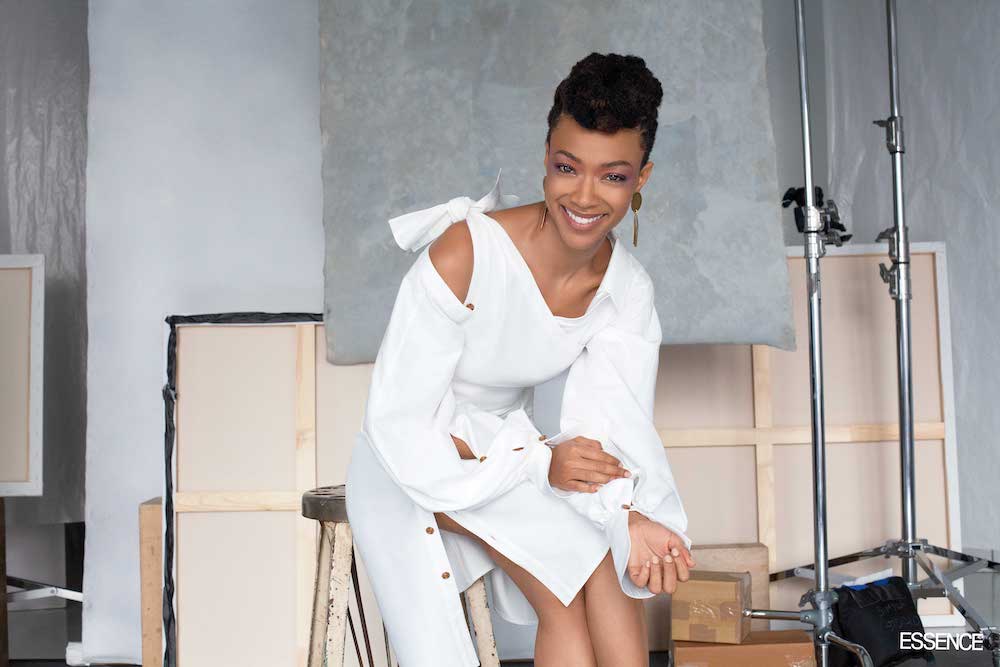
In fact, it’s essential to how we can get to a point where we are no longer defined by other people and no longer the “other,” which is what Star Trek: Discovery confronts with Michael’s story line and what Martin-Green finds important as she continues to break down barriers in Hollywood. “Michael’s pain also comes from being snatched from her home and thrown into another culture, another planet, and having to assimilate and be ostracized and looked down upon and condescended to and not seen as an equal. Obviously we can draw so many parallels to that experience,” she says.
The most distinct parallel is that of Martin-Green’s and so many other Black female thespians’ fight simply to be seen and valued in Hollywood. It’s a struggle that the actress hopes will soon disappear. “I certainly see more doors opening for Black women and people of color,” she reflects. “And of course I celebrate it. But I also have a healthy yearning for more. The way to continue opening these doors is by continuing to do what we’re doing: telling these varied, interesting, compelling, ugly, beautiful, human stories. We need for people who look like us to tell them, because otherwise we[’ll] continue to see ourselves through other people who are different from us. So I appreciate our writers and producers for standing by this vision to have a Black woman at the helm. I’m so very humbled by it and innovated by it. I just hope that this keeps spreading. I think it will.”
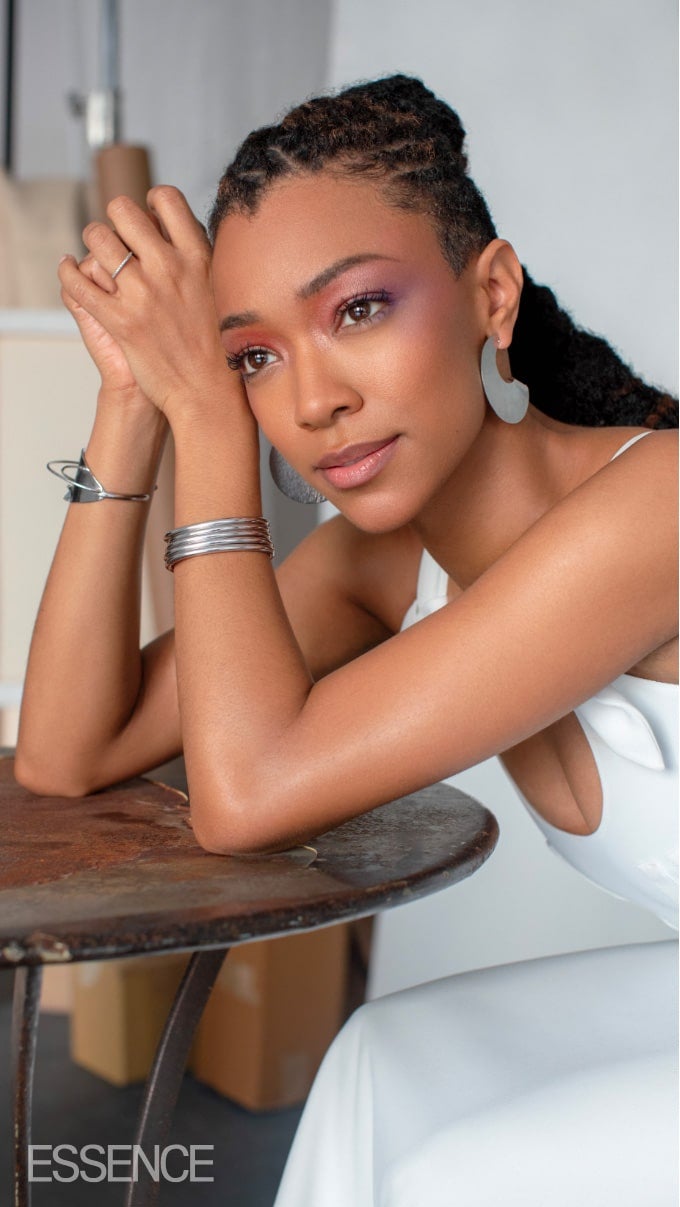
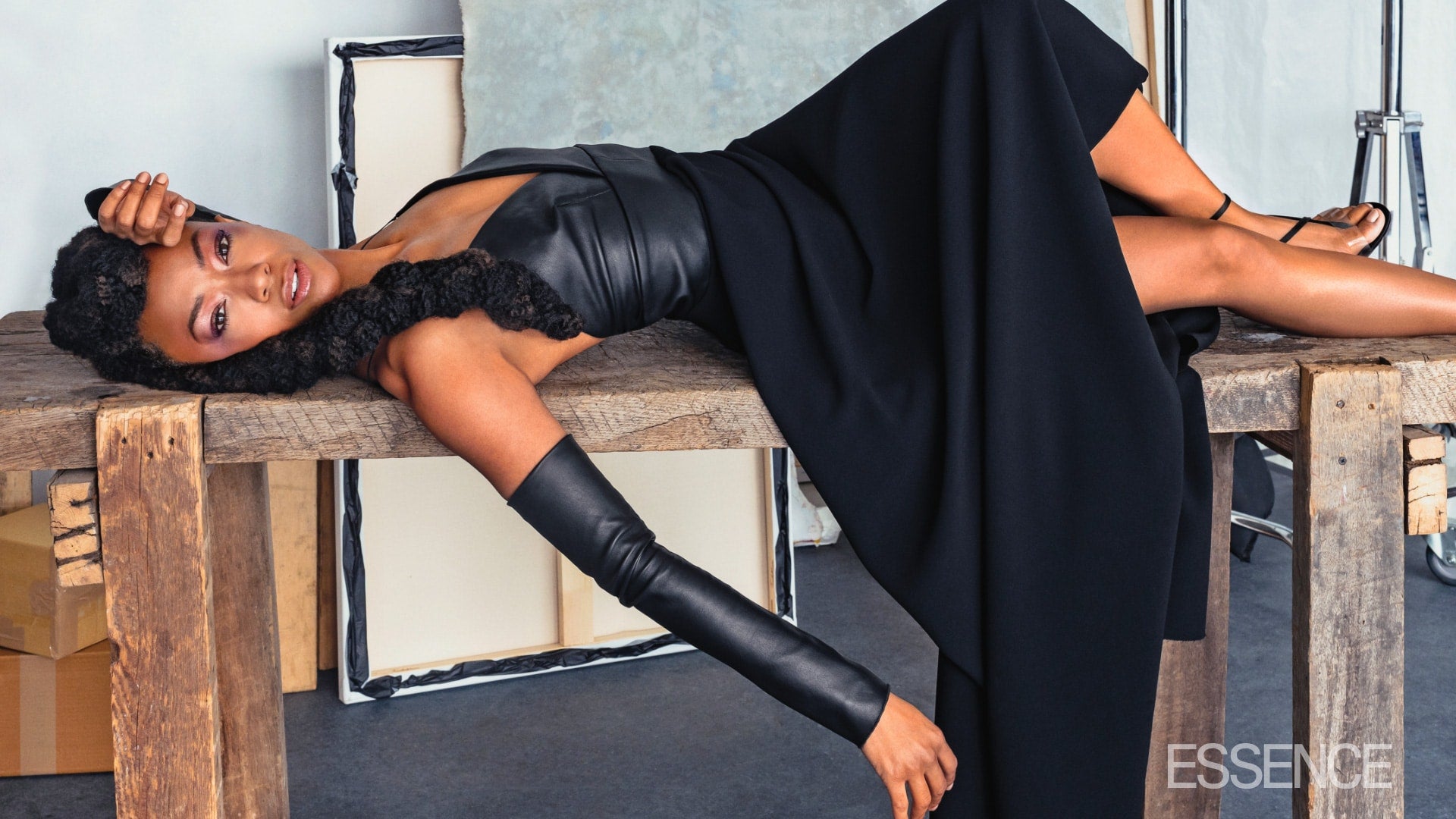
Photographer: Derek Reed – @dereklreed
Stylist: Mecca James-Williams – @meccajw
Hair: Monae Everett/Epiphany Artist Group, Inc. – @MonaeArtistry
Makeup: Jessica Smalls/The Wall Group –@jessicasmalls
Manicure: Kia Stewart/Nail Glam Productions – @__luxk


